Anthropology
-
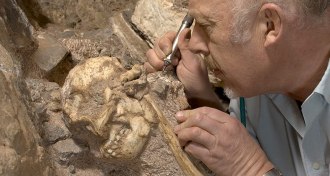 Humans
Humans‘Little Foot’ skeleton analysis reignites debate over the hominid’s species
Long-awaited analyses of the Little Foot skeleton have researchers disagreeing over resurrecting a defunct species name.
By Bruce Bower -
 Genetics
GeneticsA 5,000-year-old mass grave harbors the oldest plague bacteria ever found
DNA from an ancient strain of the plague-causing bacterium could help uncover the origins of the deadly disease.
By Bruce Bower -
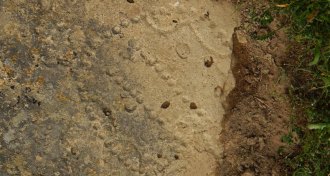 Archaeology
ArchaeologyA Bronze Age game called 58 holes was found chiseled into stone in Azerbaijan
A newly discovered rock pattern suggests that the game traveled fast from the Near East to Eurasia thousands of years ago.
By Bruce Bower -
 Anthropology
AnthropologySkull damage suggests Neandertals led no more violent lives than humans
Neandertals’ skulls suggest they didn’t lead especially injury-prone lives.
By Bruce Bower -
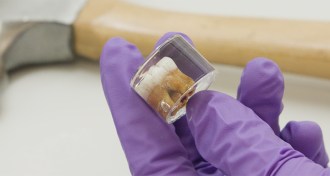 Anthropology
AnthropologyNeandertal teeth reveal the earliest known signs of lead exposure
Chemical analyses of teeth from young Neandertals show that lead exposure in hominids goes back some 250,000 years.
-
 Archaeology
ArchaeologyPeople in the Pacific Northwest smoked tobacco long before Europeans showed up
Ancient indigenous groups in the Pacific Northwest used tobacco roughly 600 years before European settlers ventured west with the plant.
-
 Anthropology
AnthropologyThe way hunter-gatherers share food shows how cooperation evolved
Camp customs override selfishness and generosity when foragers divvy up food, a study of East Africa’s Hazda hunter-gatherers shows.
By Bruce Bower -
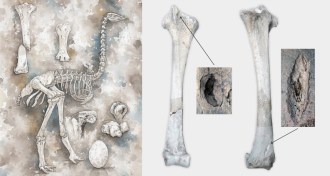 Anthropology
AnthropologyButchered bird bones put humans in Madagascar 10,500 years ago
Humans reached the island near Africa 6,000 years earlier than thought, raising questions about how its megafauna went extinct.
By Bruce Bower -
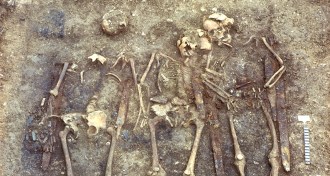 Genetics
GeneticsGerman skeletons hint that medieval warrior groups recruited from afar
Graveyard finds may come from an ancient European warrior household with political pull.
By Bruce Bower -
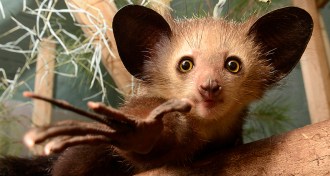 Anthropology
AnthropologyA fossil mistaken for a bat may shake up lemurs’ evolutionary history
On Madagascar, a type of lemur called aye-ayes may have a singular evolutionary history.
By Bruce Bower -
 Archaeology
ArchaeologyThe debate over people’s pathway into the Americas heats up
Defenders of an ice-free inland passage for early Americans make their case.
By Bruce Bower -
 Genetics
GeneticsIndonesia’s pygmies didn’t descend from hobbits, DNA analysis suggests
Short people living on the Indonesian island of Flores don’t appear to have DNA from controversial, small-bodied Stone Age hominids called hobbits.
By Bruce Bower